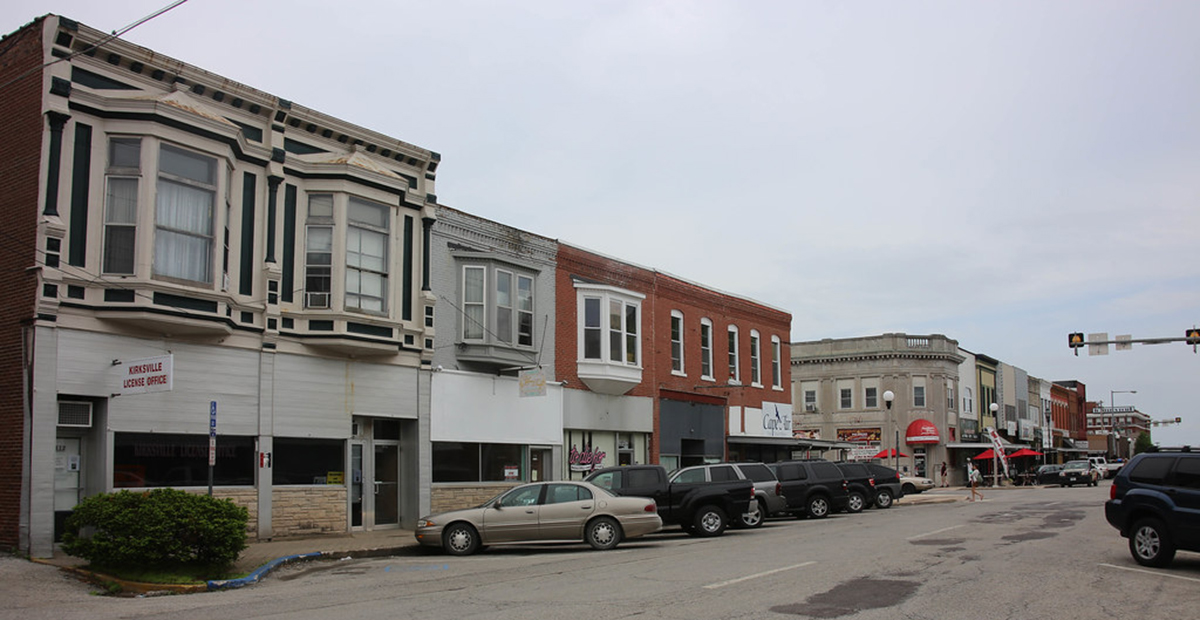In an era of declining rural health care elsewhere around Missouri, a hospital in Hannibal is planning to expand to Kirksville and compete with an existing facility there, which some fear could endanger the financial viability of both.
The Kirksville City Council in October approved the transfer of city-owned land and a rezoning of some 170 acres for the second hospital to be built in the city of just over 17,500, to be operated by the nonprofit Hannibal Regional Healthcare System (HRHS) out of Hannibal.
A Memorandum of Understanding between Kirksville and HRHS, which includes moving the city’s planned water tower on the site, says the “strategic collaboration” between the city and HRHS would “improve the quality of the delivery of healthcare services in the Kirksville community and surrounding service area.”
“Definitely, this will be a good thing for the community,” Kirksville City Council member Kabir Bansa said at the time. “I’m just looking forward to seeing this come to fruition.”
Others who have contacted The Heartlander worry that Kirksville doesn’t have either the need or capacity to support two medical campuses; that the needed workers and infrastructure aren’t there; and that the project could put both hospitals at financial risk.
Credit agency Fitch Ratings announced in November it had revised HRHS’s ratings outlook to “negative” from “stable,” citing “uncertainty around capital spending and the potential issuance of new debt to address infrastructure issues at the system’s main campus …”
The agency added that “additional debt has not been incorporated into the rating, but given HRHS’ limited debt capacity at its current rating a downgrade is likely if a material inpatient or outpatient project moves forward.”
The Heartlander has forwarded to HRHS a series of questions on its expansion plans, including whether the medical need, labor force and infrastructure are there for a second hospital in Kirksville; why it isn’t expanding to a community without an existing hospital; whether the Fitch ratings are a red flag; and whether a second hospital in Kirksville might put both at financial risk.
Northeast Regional Hospital, Kirksville’s existing hospital, declined to comment for this story. The hospital describes itself as “a 93-bed facility with a Level III trauma center, Level III STEMI center, Level III stroke center and ACC Certified Chest Pain Center. … With more than 500 healthcare professionals, Northeast Regional Medical Center is a teaching hospital associated with the founding school of osteopathic medicine. Northeast Regional Medical Center has a 4-Star CMS Quality Star rating.”
Despite Hannibal’s ambitiousness, the financial environment for rural Missouri hospitals has not been bullish in recent years:
- A year ago Noble Health announced Audrain Community Hospital in Mexico, Missouri, and Callaway Community Hospital in Fulton were suspending operations due to restructuring and finances.
- Executives at Scotland County Hospital in Memphis last fall were fighting to save the facility, after alleged financial improprieties and having lost money five years in a row.
- In Milan, the prospect of closing its doors hangs over Sullivan County Memorial Hospital’s urging the community to renew a half-percent sales tax April 4.
“Some people just simply don’t have good transportation or they don’t even have it – just too much trouble for them,” Sullivan County Memorial Hospital Board member Jim Heato told a local media outlet. “So there are people, plenty of people … that just simply wouldn’t receive health care otherwise. So it’s critical that this hospital remain here to serve the people of this county.”
- In 2019 David Lane Byrns, the former CEO of Putnam County Memorial Hospital in Unionville, pleaded guilty to conspiracy to commit health care fraud. Federal officials say he agreed to a forfeiture judgment of $5.1 million.
Byrns and others, feds say, “arranged for urine drug tests (UDTs) and blood tests to be performed on a massive scale at diagnostic testing laboratories outside Missouri, on behalf of individuals who were not Putnam patients and who otherwise had no connection to Putnam.”
They used samples “from substance abuse treatment centers, sober living homes, physicians’ offices and other sources throughout the United States, in exchange for a portion of the insurance reimbursements. Many of the tests conducted were medically unnecessary. Byrns and his co-conspirators billed the tests to private insurers and to the Missouri Medicaid program using Putnam’s billing credentials.”
A 2017 audit of Putnam discovered $90 million in illegal billings. Last June, a jury convicted two Florida men “in a conspiracy to operate a multi-state $1.4 billion billing scheme that used rural hospitals to submit fraudulent claims.”







